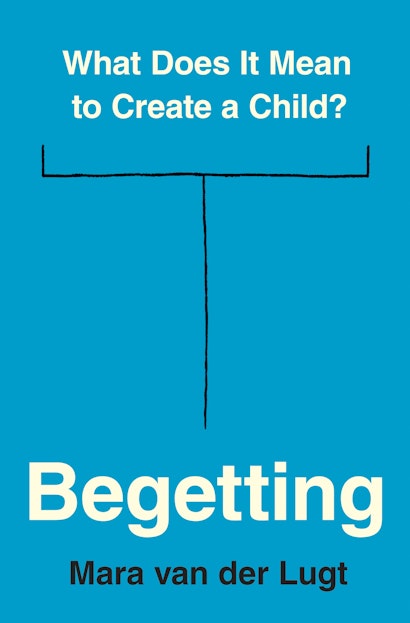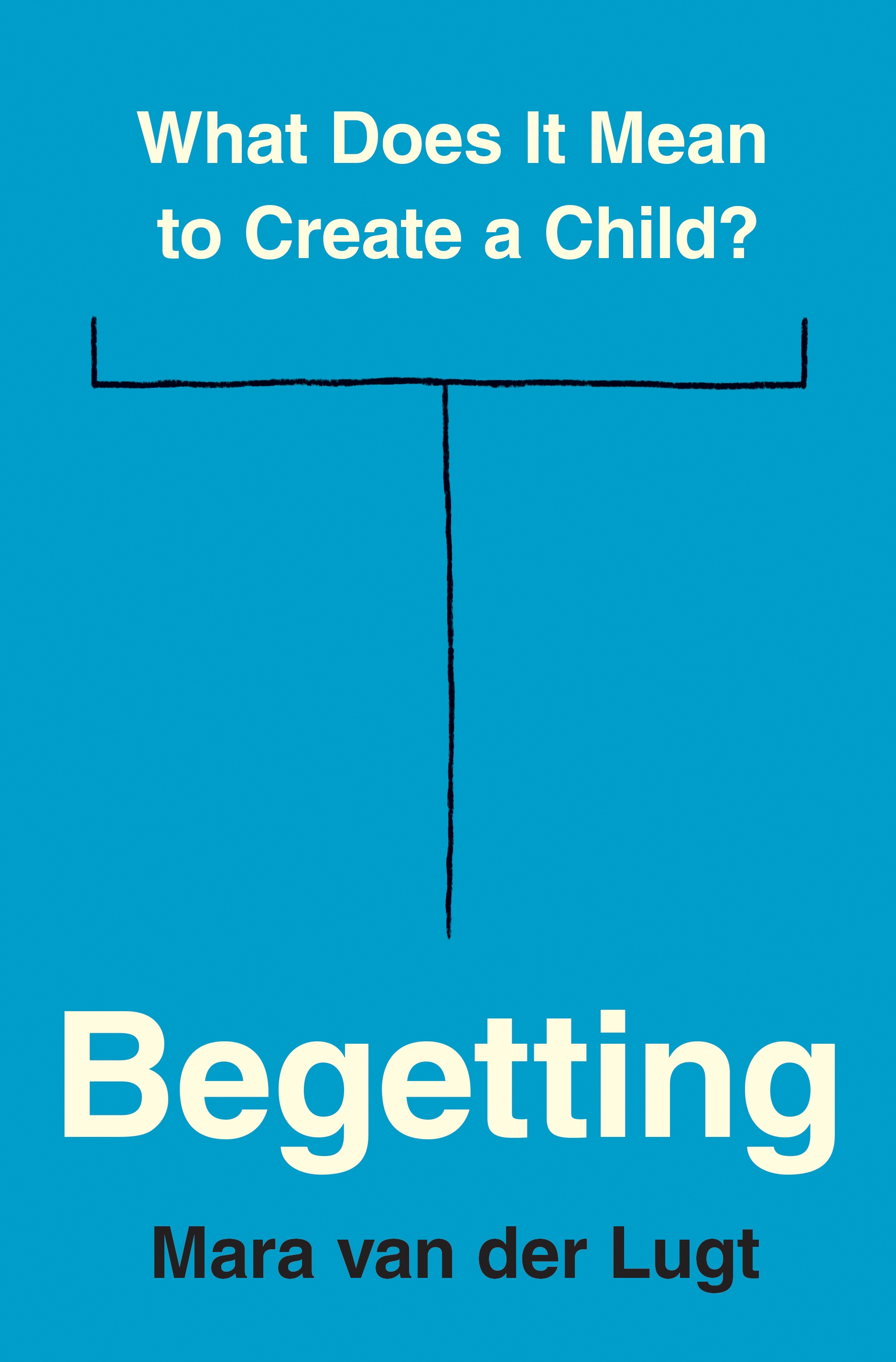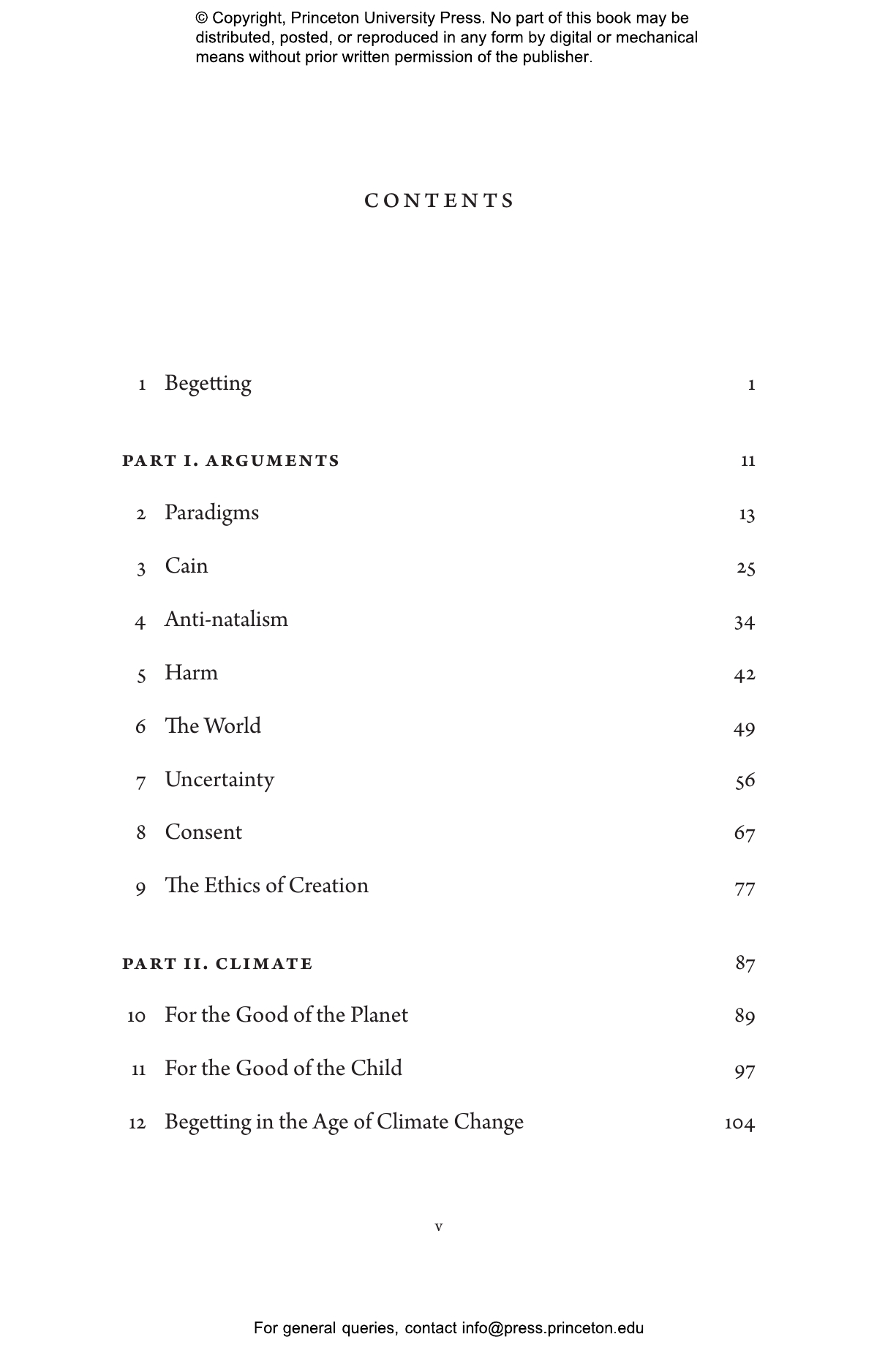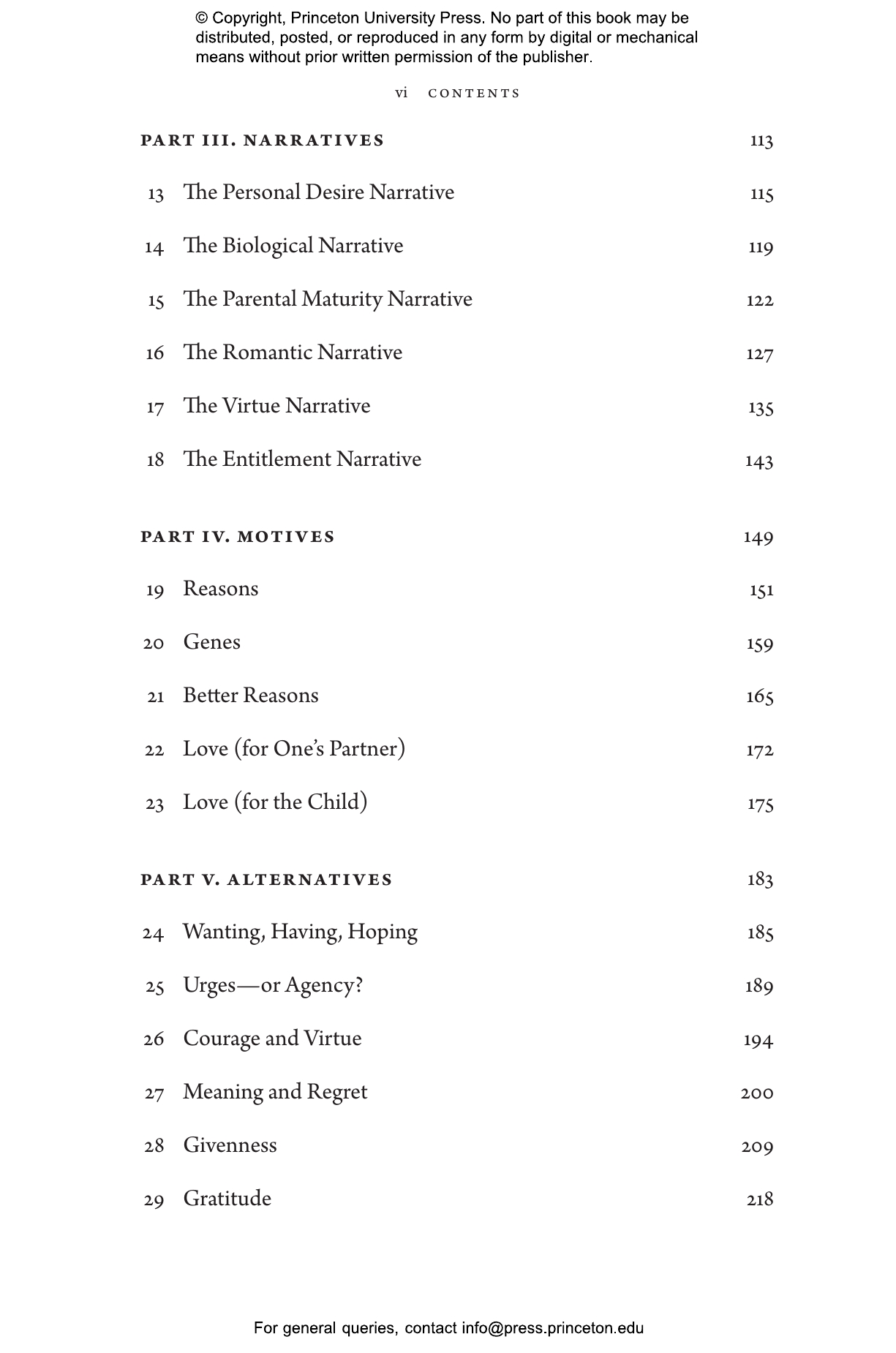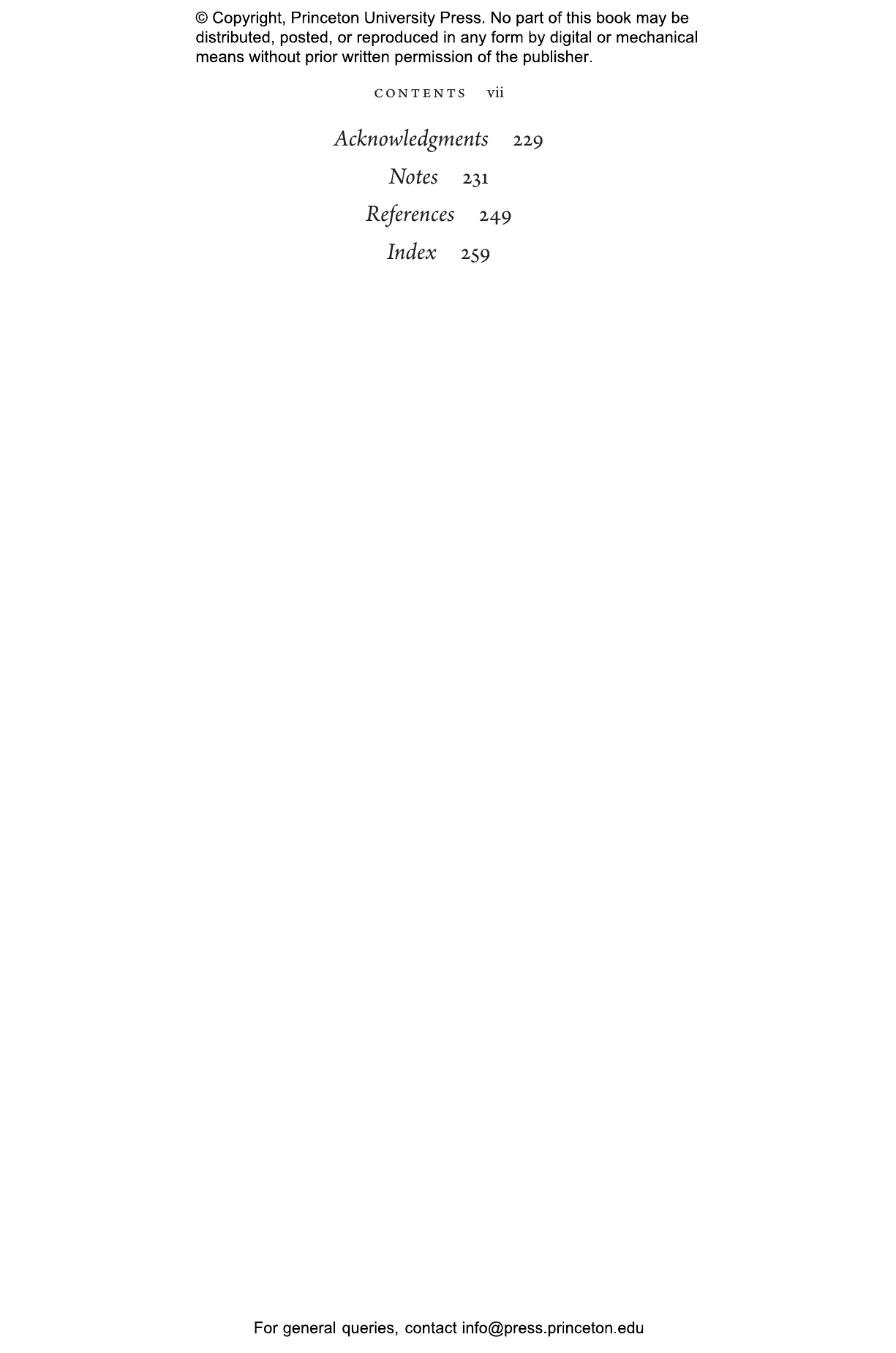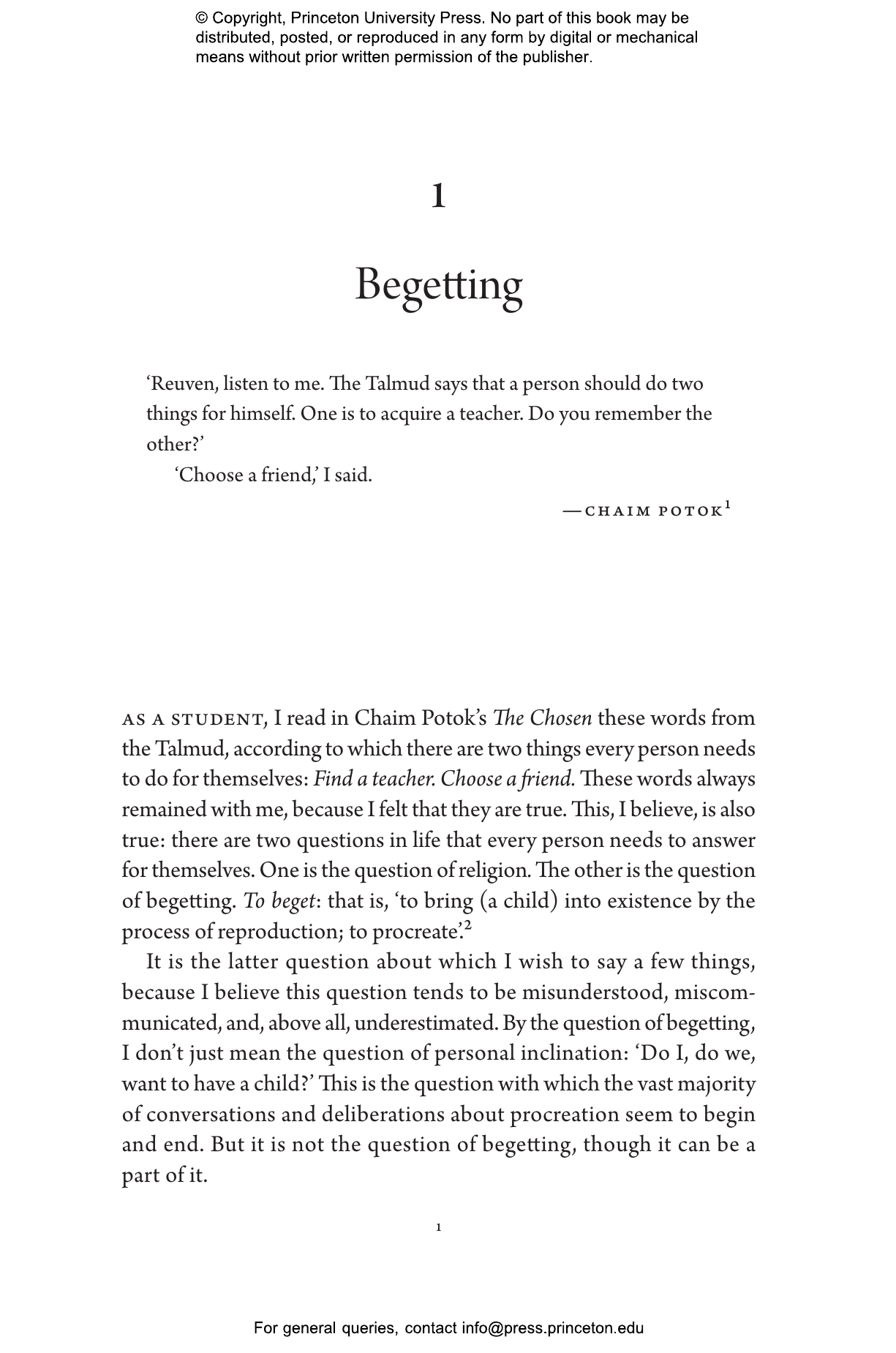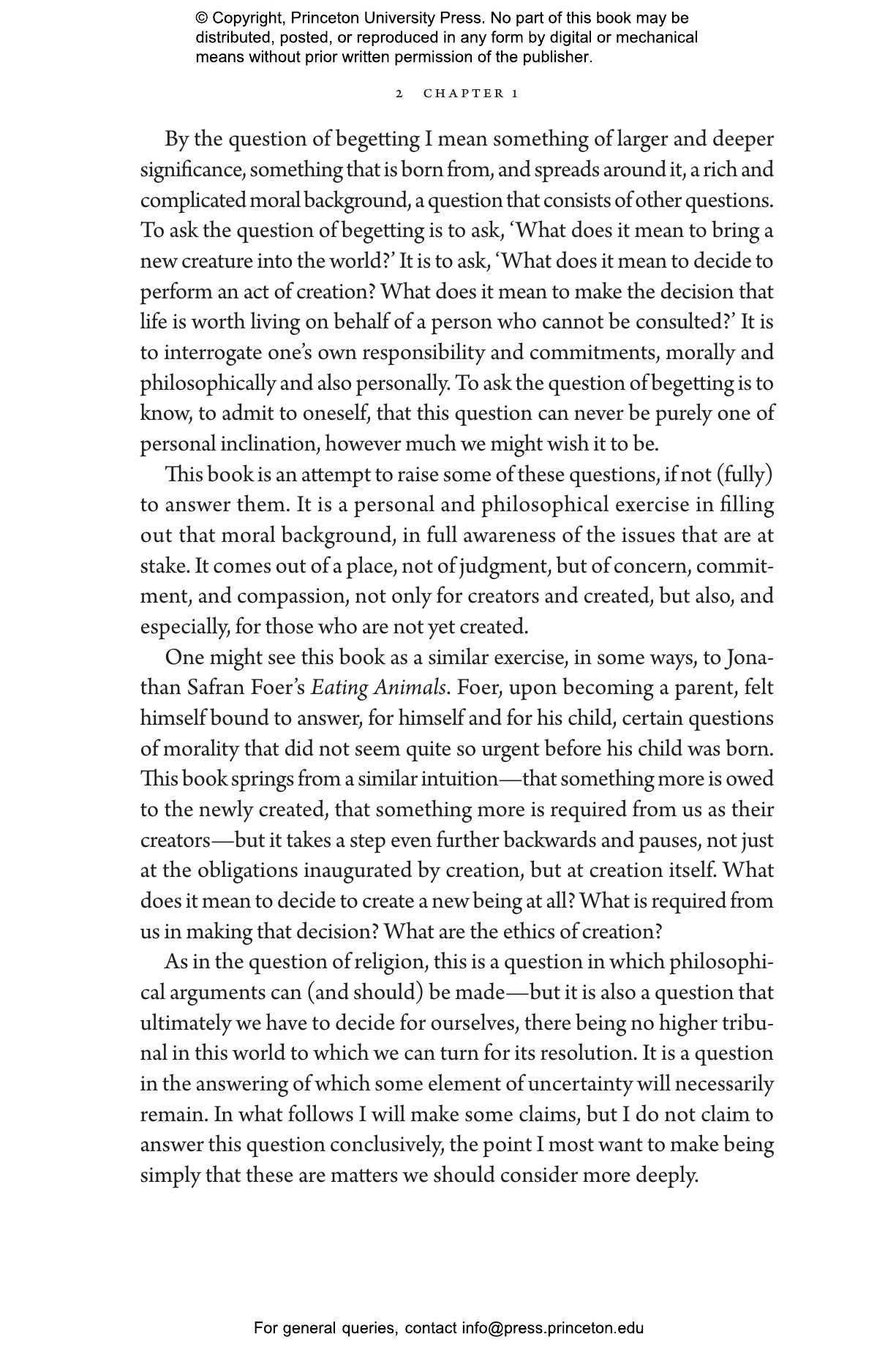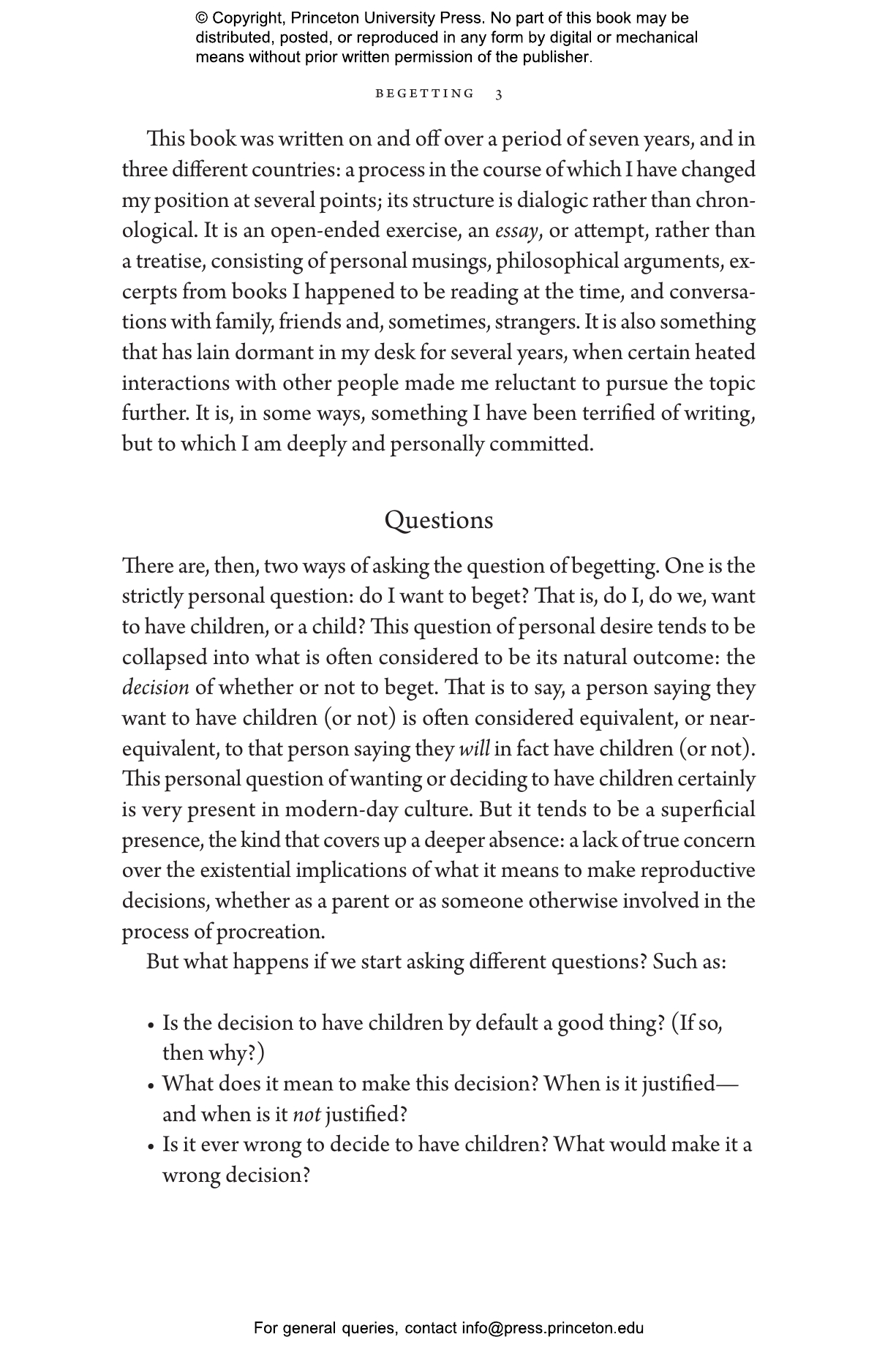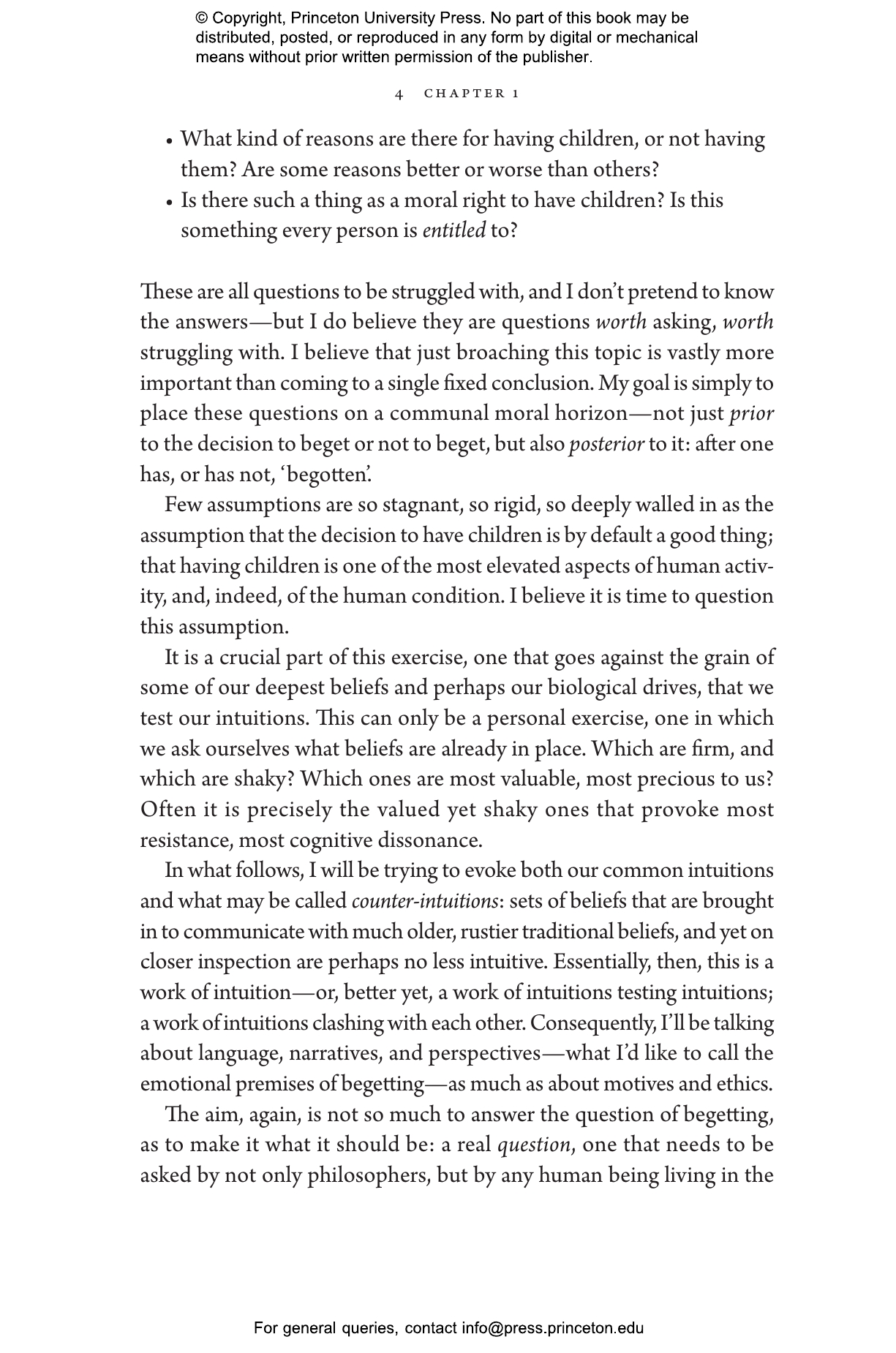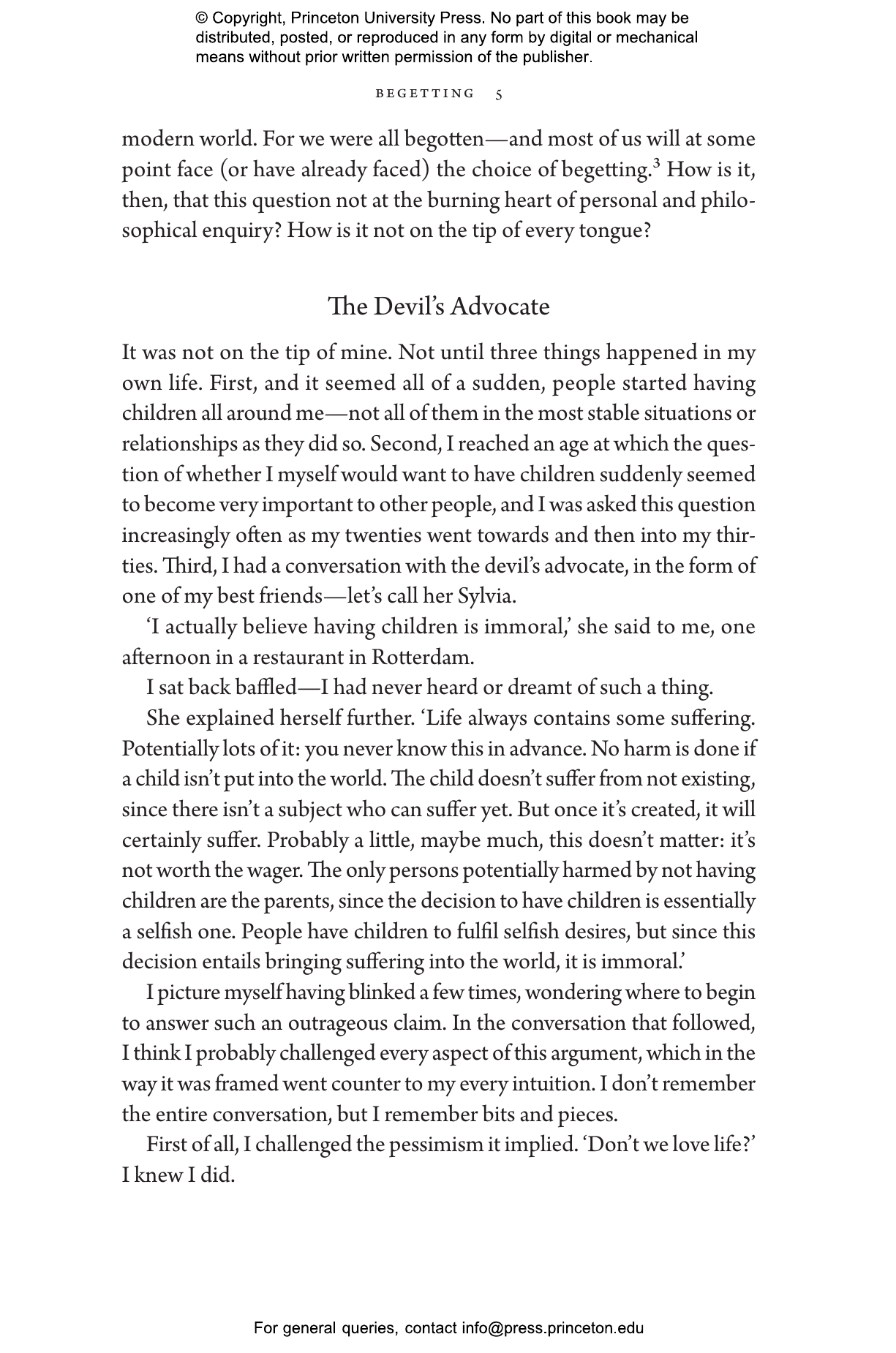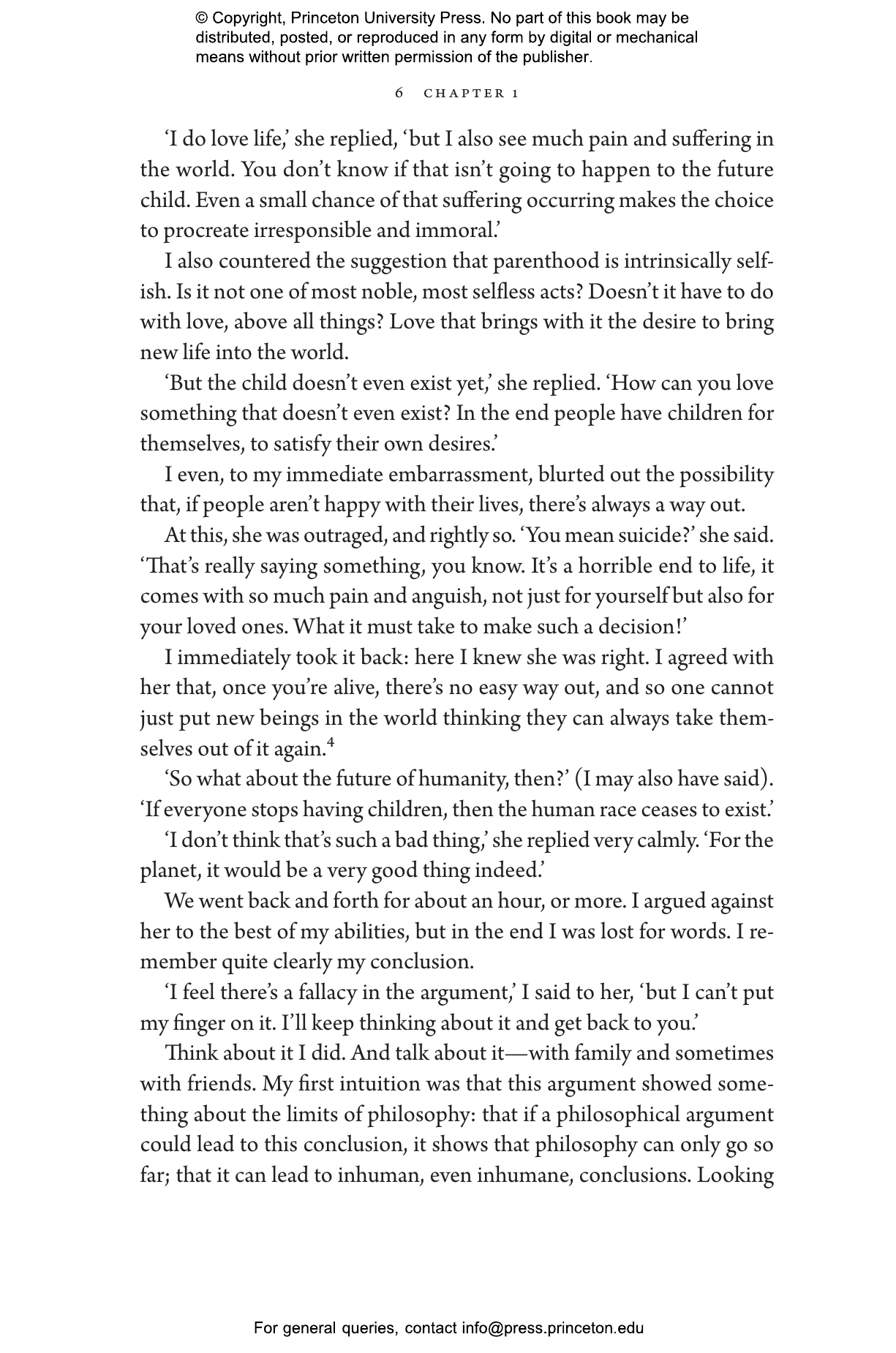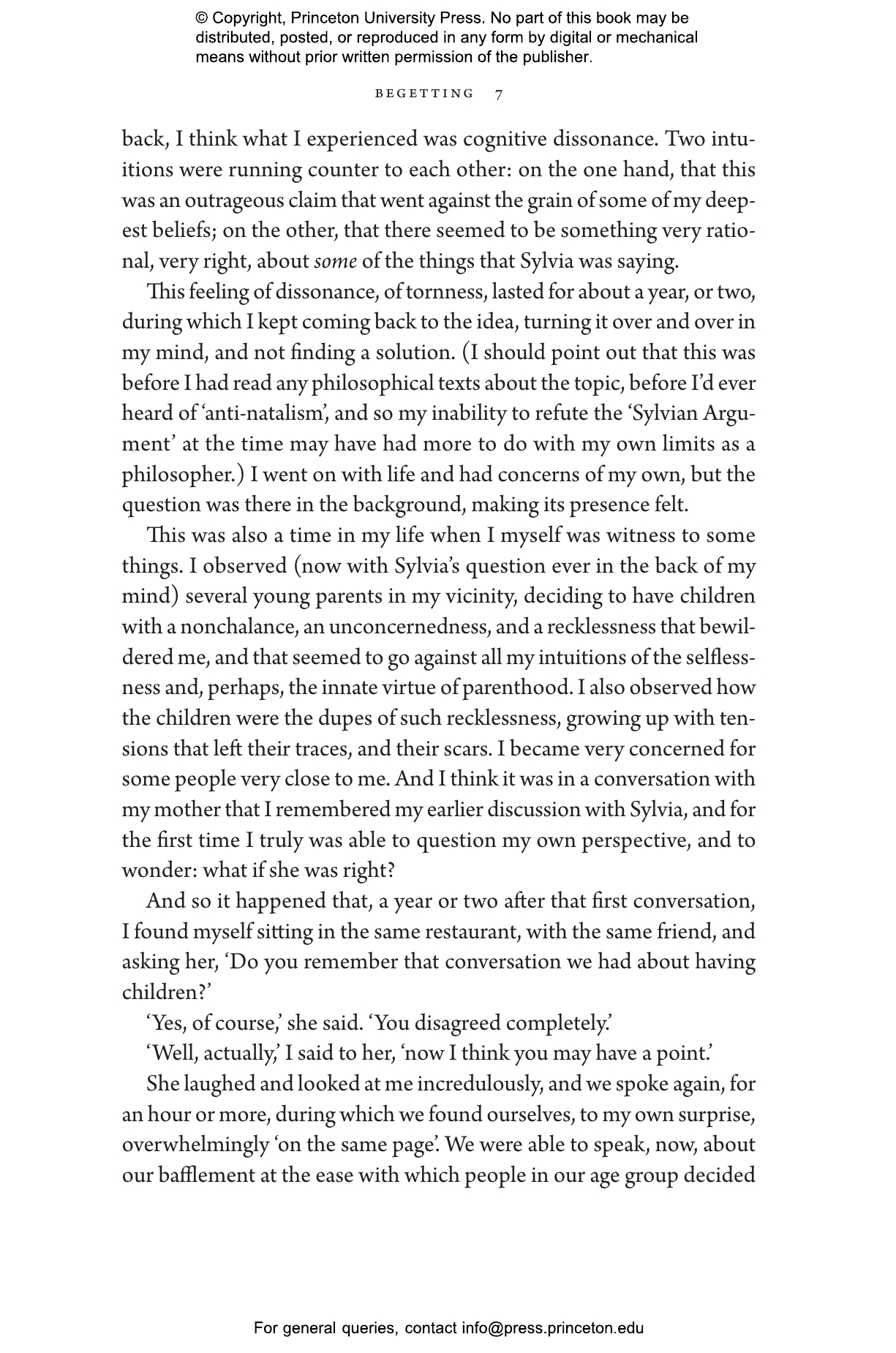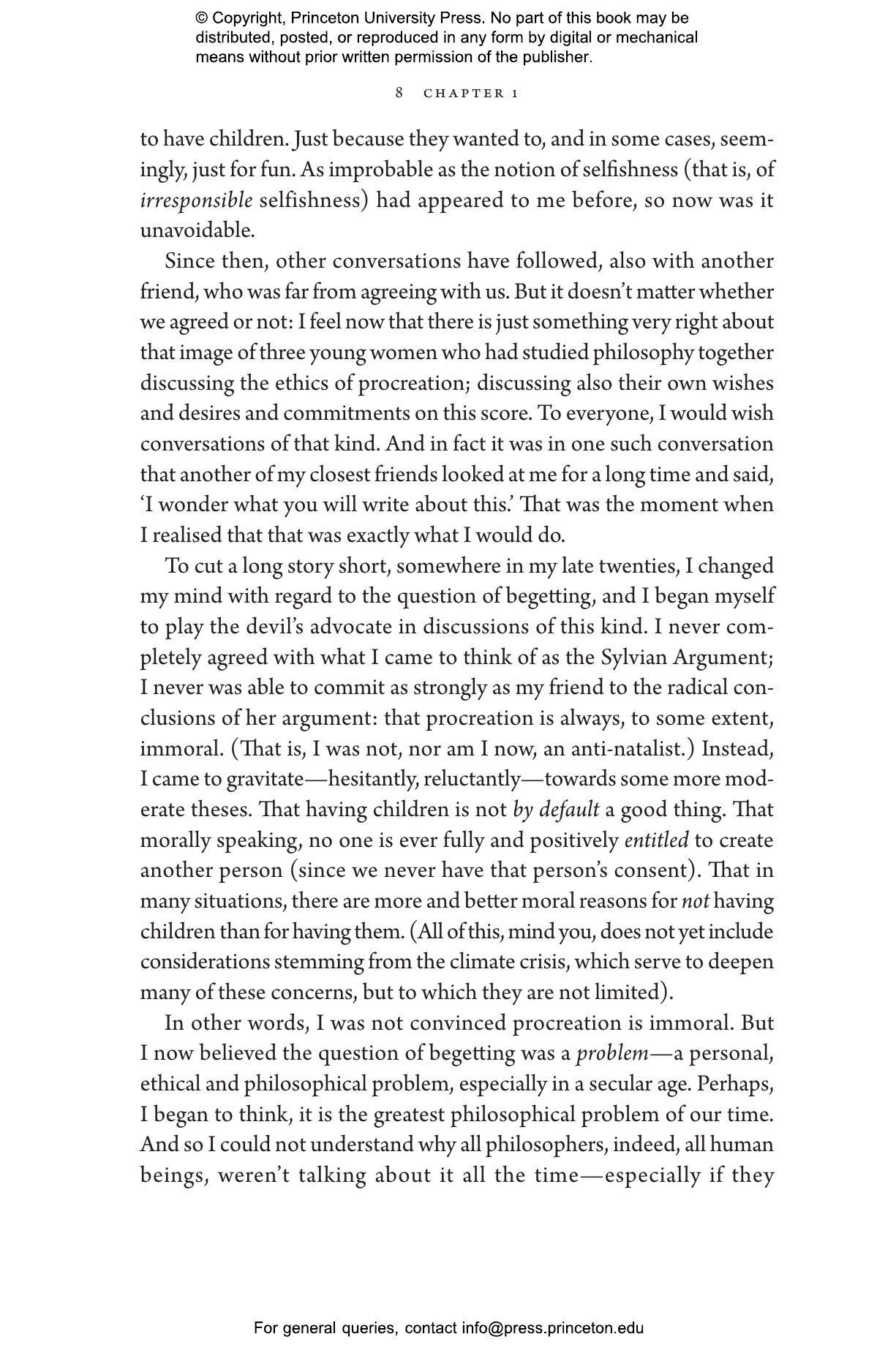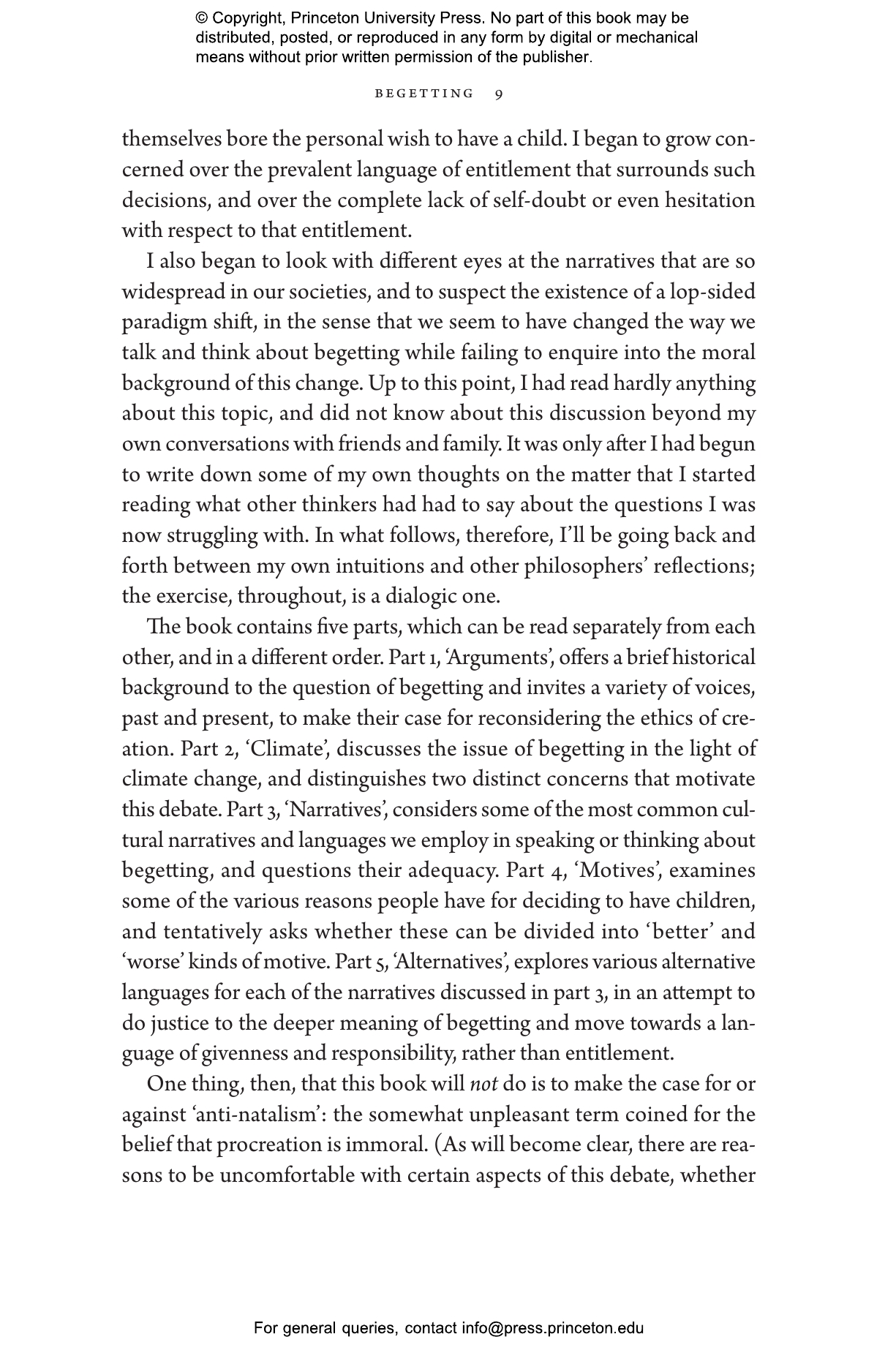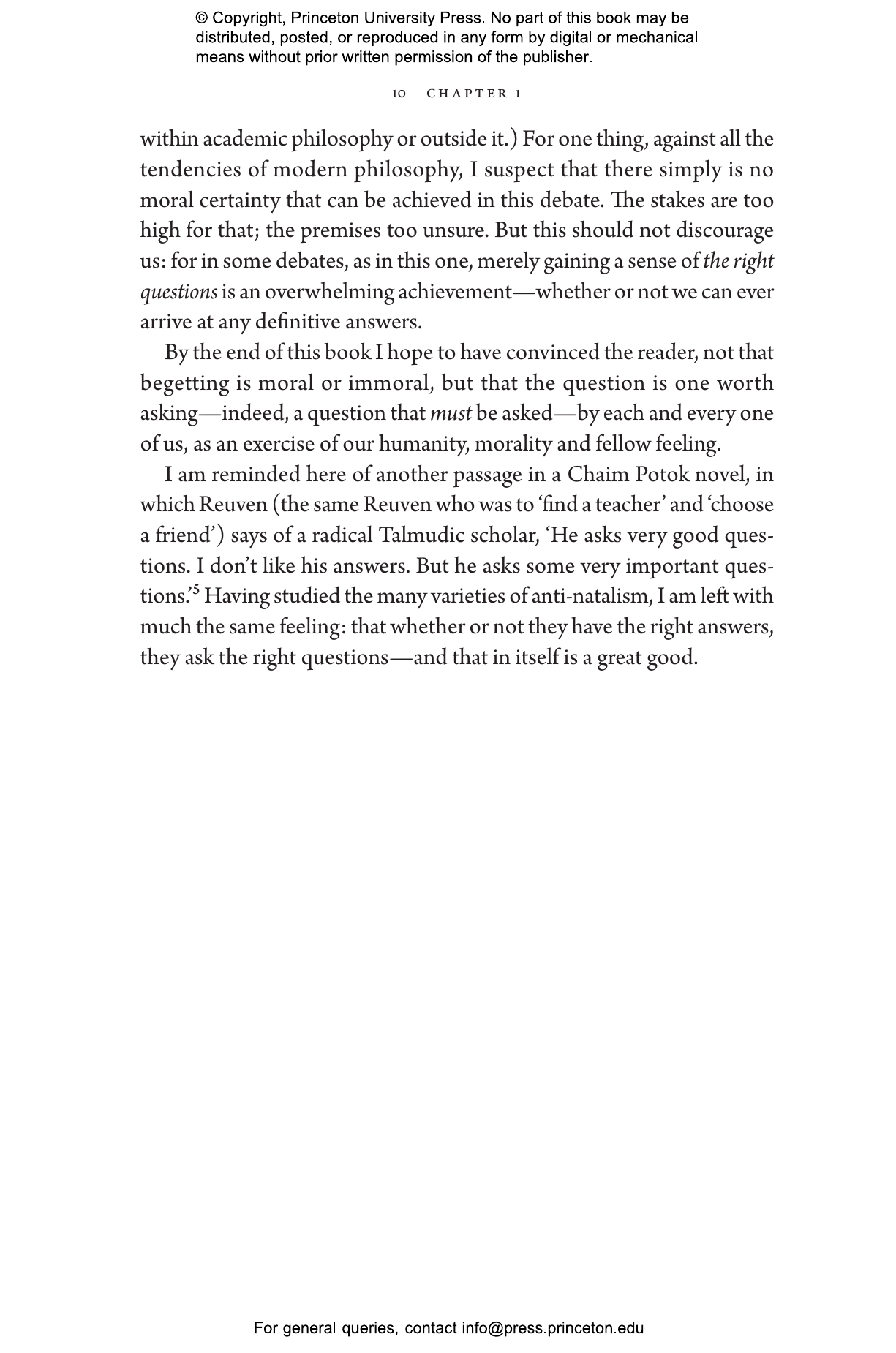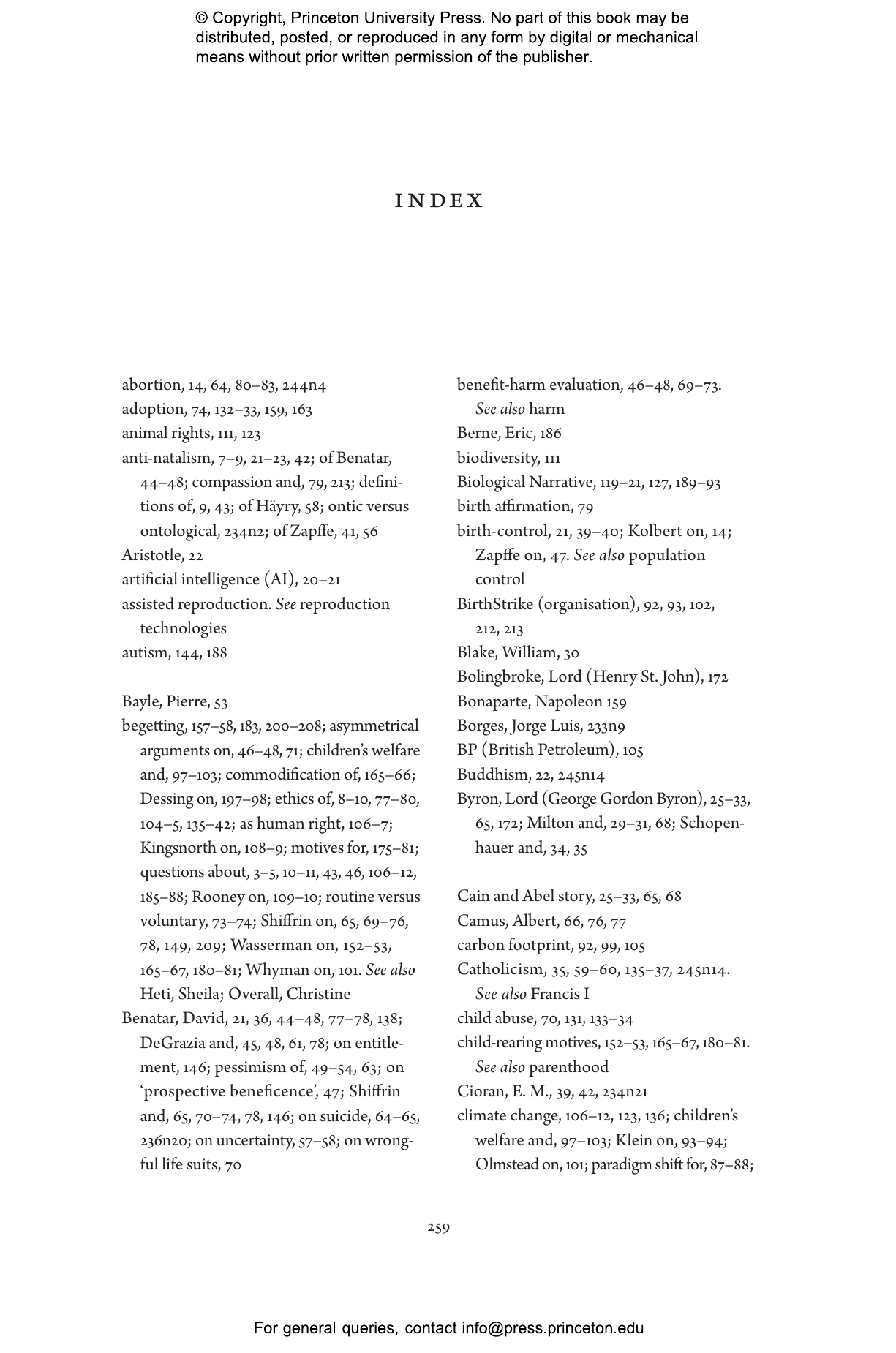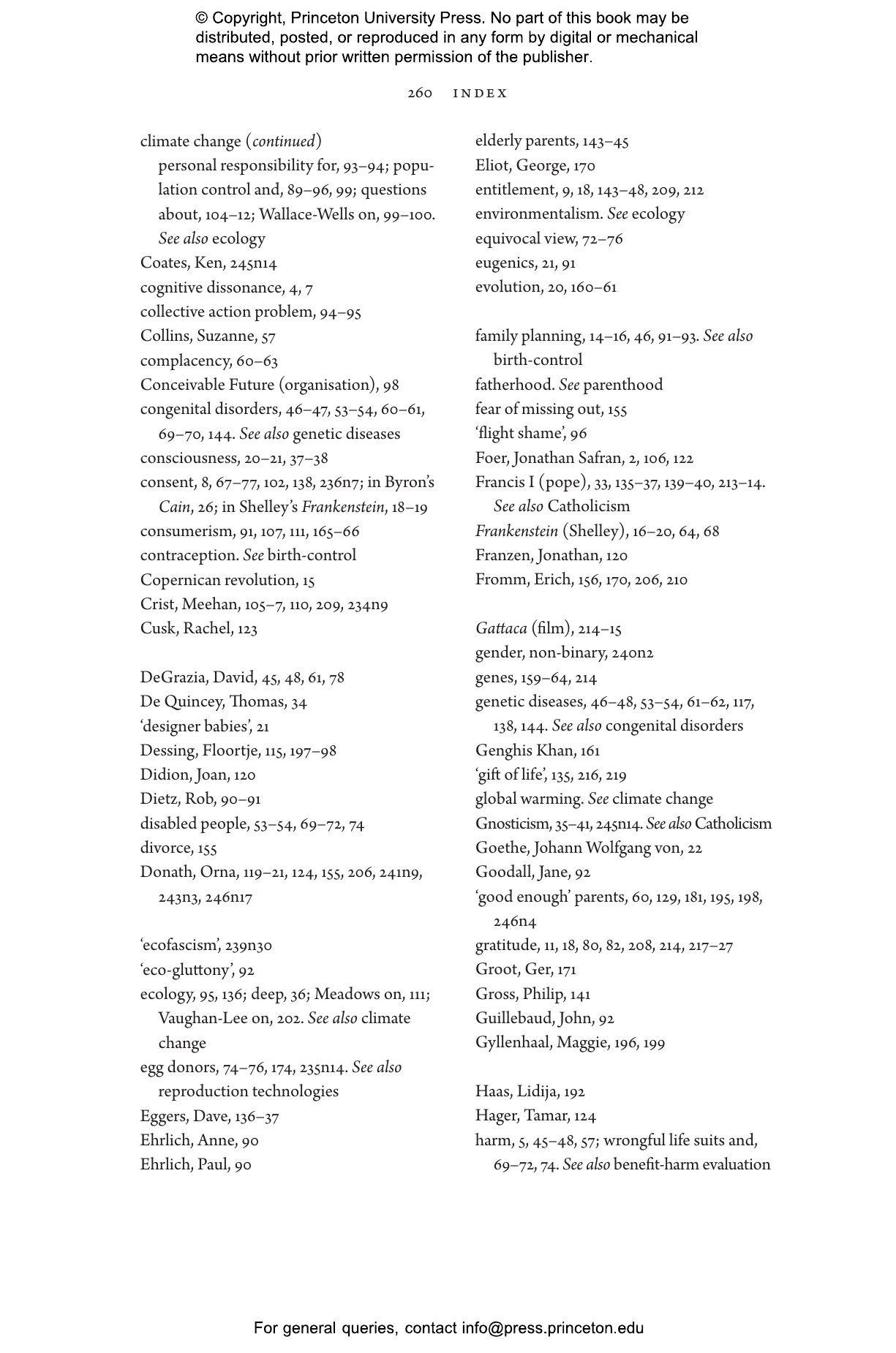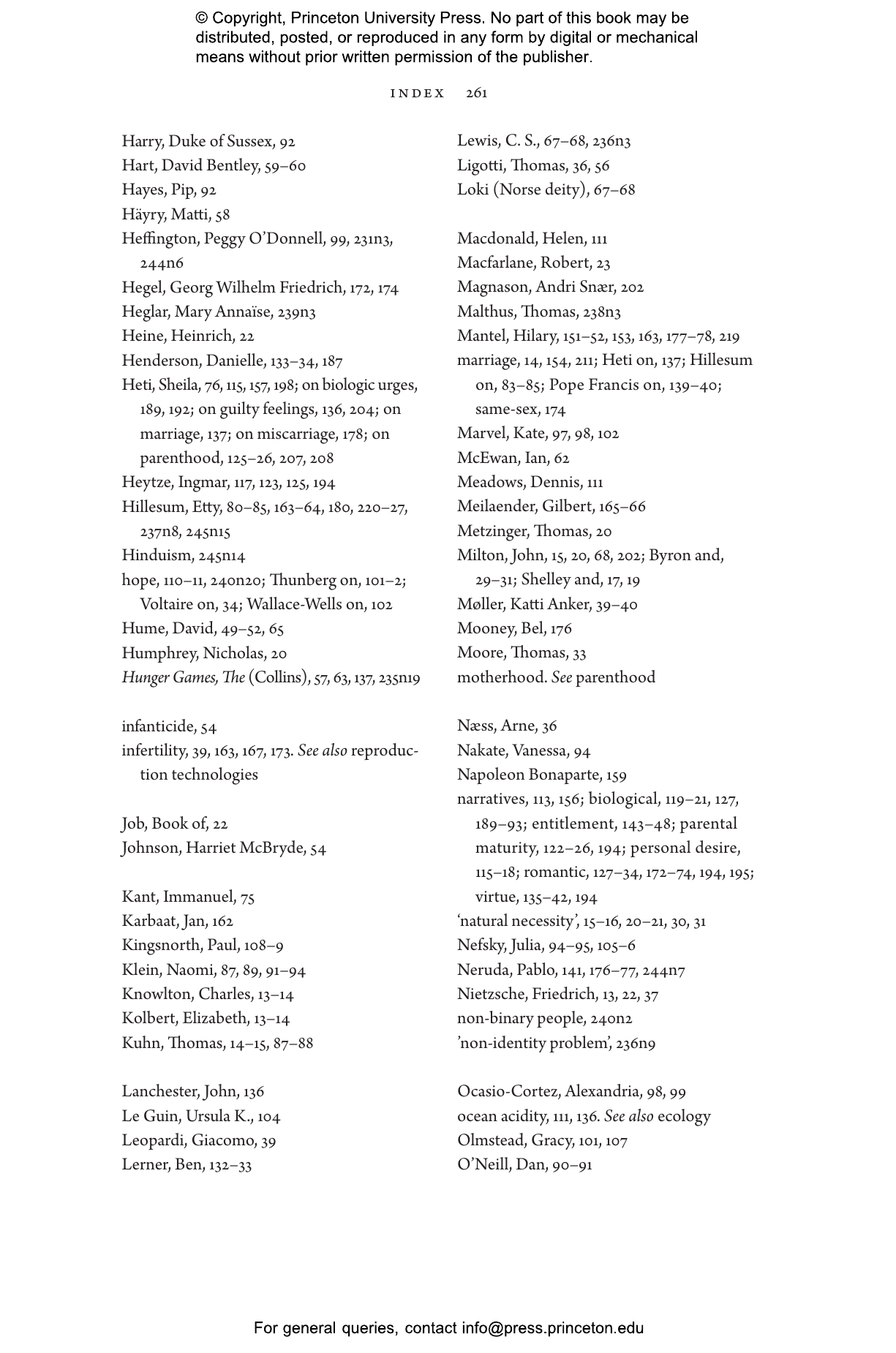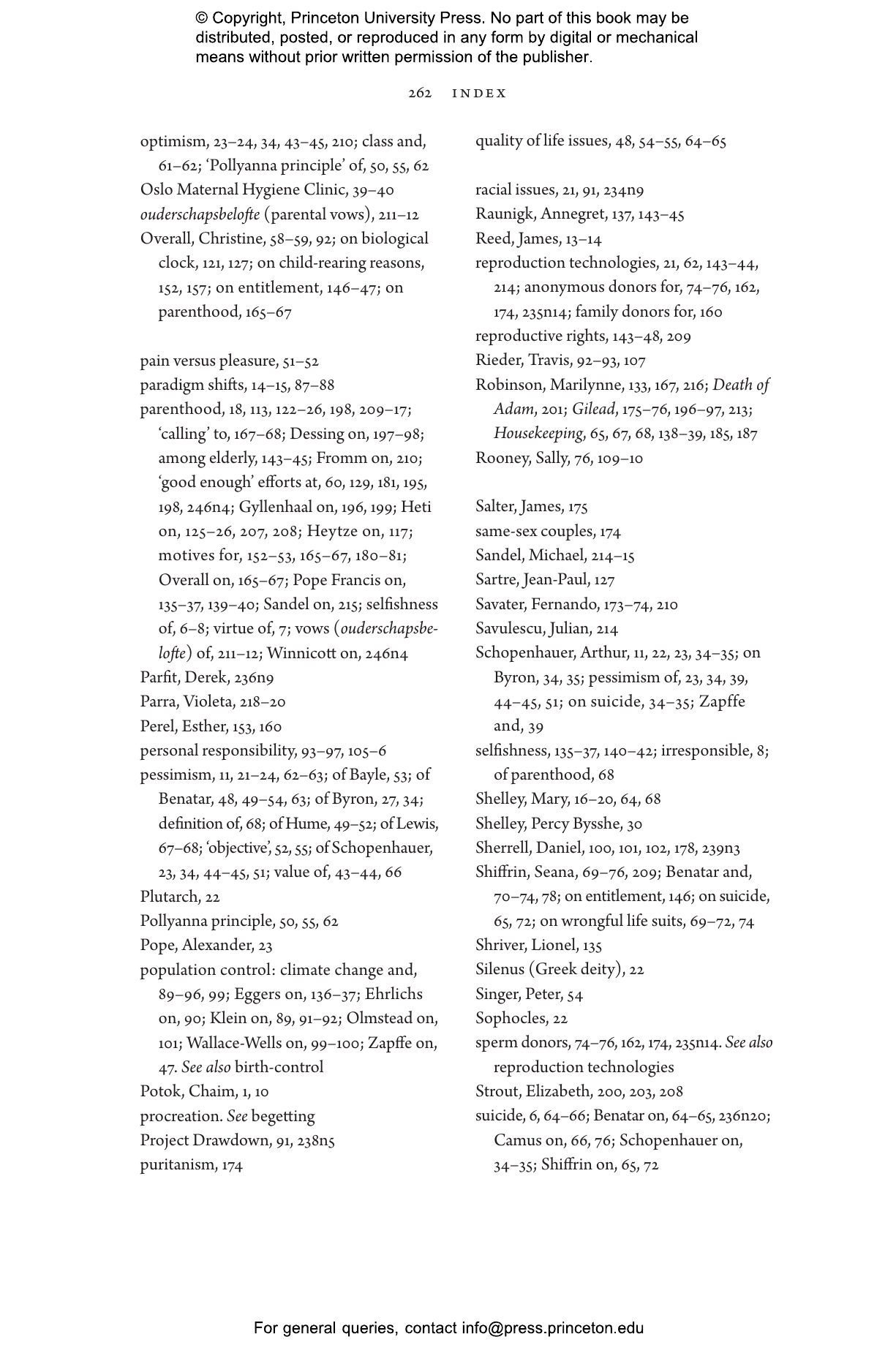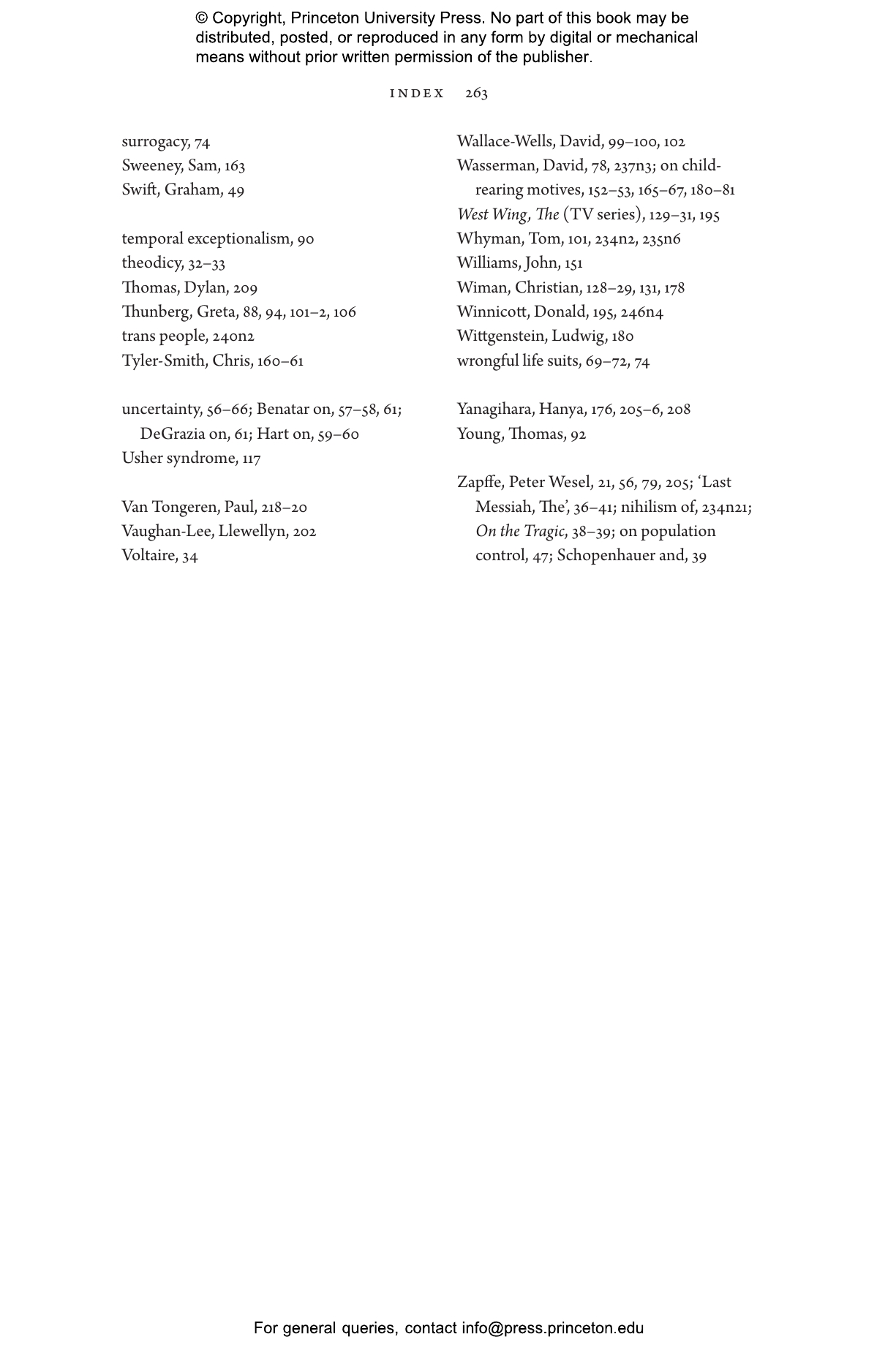“Do you want to have children?” is a question we routinely ask each other. But what does it mean to create a child? Is this decision always justified? Does anyone really have the moral right to create another person? In Begetting, Mara van der Lugt attempts to fill in the moral background of procreation. Drawing on both philosophy and popular culture, van der Lugt does not provide a definitive answer on the morality of having a child; instead, she helps us find the right questions to ask.
Most of the time, when we talk about whether to have children, what we are really talking about is whether we want to have children. Van der Lugt shows why this is not enough. To consider having children, she argues, is to interrogate our own responsibility and commitments, morally and philosophically and also personally. What does it mean to bring a new creature into the world, to decide to perform an act of creation? What does it mean to make the decision that life is worth living on behalf of a person who cannot be consulted? These questions are part of a conversation we should have started long ago. Van der Lugt does not ignore the problematic aspects of procreation—ethical, environmental and otherwise. But she also acknowledges the depth and complexity of the intensely human desire to have a child of our own blood and our own making.
Mara van der Lugt is lecturer in philosophy at the University of St Andrews, where she specializes in early modern intellectual history and philosophy. She is the author of Dark Matters: Pessimism and the Problem of Suffering (Princeton) and Bayle, Jurieu, and the “Dictionnaire Historique et Critique.”
"[Van der Lugt’s] contagious intellectual curiosity—and willingness to make room for unanswered questions—will keep readers glued to the page. It’s an ambitious look at some of life’s most foundational questions."—Publishers Weekly
"Bidding someone forth, conjuring a new person from a couple of cells, is an act of tremendous magnitude, one whose meaning is perhaps too great and abstract to grasp or articulate with any precision. . . . This, in the end, is Van der Lugt’s request of us: to pose the question of begetting to ourselves, and to answer it for only ourselves."—Anna Louie Sussman, The Atlantic
"I loved this book . . . . It gave me so much to think about, and in new ways."—Katha Pollitt, Washington Post
"An enlightening look at the dilemmas of childbearing."—Lucy McDonald, Times Literary Supplement
"A highly thought-provoking and informative read. . . .A must-read for anyone."—Ilina Jha, Redbrick Culture
“This is a valuable and deeply engaging book, which fills an important gap between the extensive and increasingly ingrown philosophical literature on the ethics of procreation and the equally esoteric discussion of the subject on antinatalist websites and social media.”—David Wasserman, coauthor of Debating Procreation
“During the last twenty years of exploring the field of reproduction, non-motherhood, and motherhood, I have longed to come across a text that will disturb my mind. Finally, it happened. Begetting insightfully disturbed it. In this book, Mara van der Lugt dares to deal with the left-aside and unwelcomed fundamental, philosophical, moral, ethical, and existential questions of procreation and ‘coming into existence.’ She uncompromisingly insists on not pleasing the world while doing it with appreciated humility and impressive intellectual depth.”—Orna Donath, author of Regretting Motherhood: A Study
“Mara van der Lugt is highly intelligent, open-minded, and sympathetic to the strengths of opposing positions. Her book, Begetting, is pregnant with important ideas.”—David Benatar, author of Better Never to Have Been: The Harm of Coming into Existence
